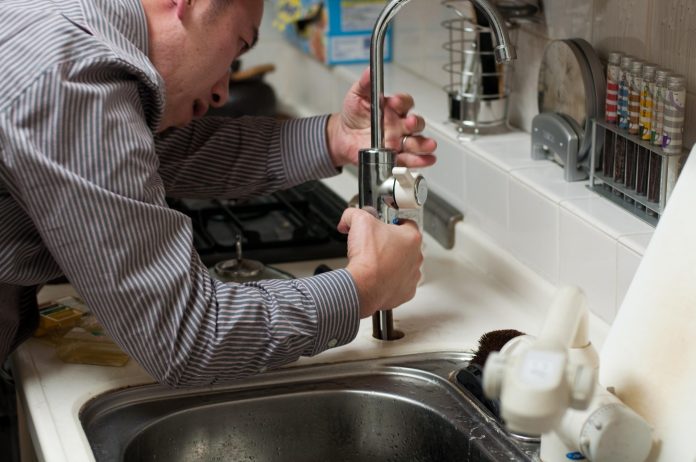When your air conditioner dies on the hottest day of summer or your roof starts leaking during a thunderstorm, finding a reliable contractor fast becomes critical. But most homeowners make the same mistake – they start with Google searches and online reviews, missing the insider secret that professionals use to vet each other.
The Game-Changing Strategy Nobody Talks About
Hang out at your local lumberyard. Seriously. The employees at lumber yards and building supply stores interact with contractors every single day. They know exactly who buys quality materials versus bottom-dollar junk, who shows up consistently, and how contractors treat people when they think nobody’s watching.
According to This Old House experts, talking to building inspectors and lumberyard employees reveals valuable insights about local contractors they’ve worked with over years of projects.
These workers see contractors at their most honest moments. They know who throws tantrums over pricing, who treats staff respectfully, and who actually knows what they’re ordering. As one lumber industry source explains: “local lumber yards know the local contractors over the course of years and through a variety of projects. They deal with the ones who do the job right, at a fair price.”
The Hidden Clues in Plain Sight
Check their vehicles. Reliable contractors keep equipment in good condition and display their company name prominently. Beat-up trucks with no company identification often signal fly-by-night operations.
Visit current job sites. Ask to see a project in progress, not just finished photos. Pay attention to job site cleanliness, safety practices, and how workers interact with each other. A messy, disorganized site usually means messy, disorganized work.
The “leftover materials” scam. If someone knocks on your door claiming they have extra materials from a nearby job, run. Legitimate contractors order specific materials for specific projects – they don’t drive around with random supplies looking for takers.
The Math Test They Hope You’ll Skip
Ask for estimates where totals are calculated by formula, not manually entered. One homeowner discovered their contractor’s math made no sense. “When questioned, he would either blame the software or say he would revise it,” they reported.
Watch for material markups between 7.5% to 20% – that’s normal. Anything higher suggests they’re padding profits at your expense.
The NATE Certification Secret
Most people ask about licensing, but the certification that actually matters for HVAC work is NATE (North American Technician Excellence). This rigorous training separates real experts from people who “just walked in the door.”
NATE certification requires extensive testing and education – it’s not something you can fake or buy. Note that HVAC contractors may also be listed as HVACR (Heating, Ventilation, Air Conditioning, and Refrigeration) contractors.
The Insurance Trap Almost Everyone Falls Into
Don’t just ask if they’re “bonded” – that word means almost nothing. There are different types of bonds, and most don’t protect homeowners. Ask specifically for proof of:
- General liability insurance ($1 million minimum)
- Workers’ compensation coverage
- Business-services bond (not just “dishonesty” bonding)
The Google Review Hack
Here’s what most people miss: don’t just read the reviews – study how companies respond to negative feedback. Professional contractors address criticism constructively and offer solutions. Companies that ignore complaints or respond defensively reveal their true character.
Focus on Google business page reviews specifically – these can’t be easily faked like website testimonials.
The Budget Secret Contractors Don’t Want You to Know
Never reveal your total budget upfront. “If you don’t know the contractor and you give him a budget of $50,000, he’ll bring it right to that mark,” warns one experienced homeowner. “We did that on our first job, and we got burned.”
Set aside 10-20% extra for surprises, but keep that cushion to yourself.
The Vanishing Act Prevention Strategy
When contractors disappear mid-project, it’s usually cash flow problems. Industry insider Glenn Tobias has counterintuitive advice: offer to pay more frequently. “Get on the phone and say, ‘I know the economy is bad. Do we need to rework the schedule so you have more cash flow?'”
This approach works “50 percent of the time, if not more,” according to Tobias.
The Social Media Intelligence Test
Check contractors’ Facebook and YouTube pages for real-time insights. Recent posts reveal current work quality and customer interactions better than polished websites. Look for project photos, customer comments, and how they handle online interactions.
Ohio-Specific Red Flags
In Ohio, HVAC, electrical, and plumbing contractors need state licensing through the Ohio Construction Industry Licensing Board. Verify licenses at ocilb.ohio.gov.
Cities like Cleveland require contractors to register annually (call 216-664-2910 to verify). Summit County recently eliminated their $145 annual fee, switching to permit-based registration.
The Emergency Contractor Litmus Test
Even if you don’t need emergency service, ask about 24/7 availability. Their response reveals business stability and customer service commitment. Fly-by-night operators rarely offer round-the-clock support.
The Payment Schedule Truth
Standard payment should align with work completion, not arbitrary dates. Materials typically account for 40% of total costs. Never pay everything upfront, and always make checks out to the company name, not an individual.
Legitimate contractors provide a “cooling-off period” allowing you to cancel contracts within three days of signing.
The Paper Trail That Saves Your Sanity
Create one project folder containing: contracts, change orders, certificates of insurance, progress photos, and all correspondence. This single step prevents most contractor disputes, according to industry experts.
Trust Your Gut – It’s Usually Right
The contractors worth hiring welcome questions, provide detailed written estimates, and never pressure for immediate decisions. If something feels off during initial meetings, trust that instinct.
Quality contractors stay booked weeks or months ahead. Anyone offering to start work immediately should raise red flags.
Bottom line: The lumberyard strategy works because it reveals character when contractors think nobody’s watching. That inside information beats online reviews every time.











